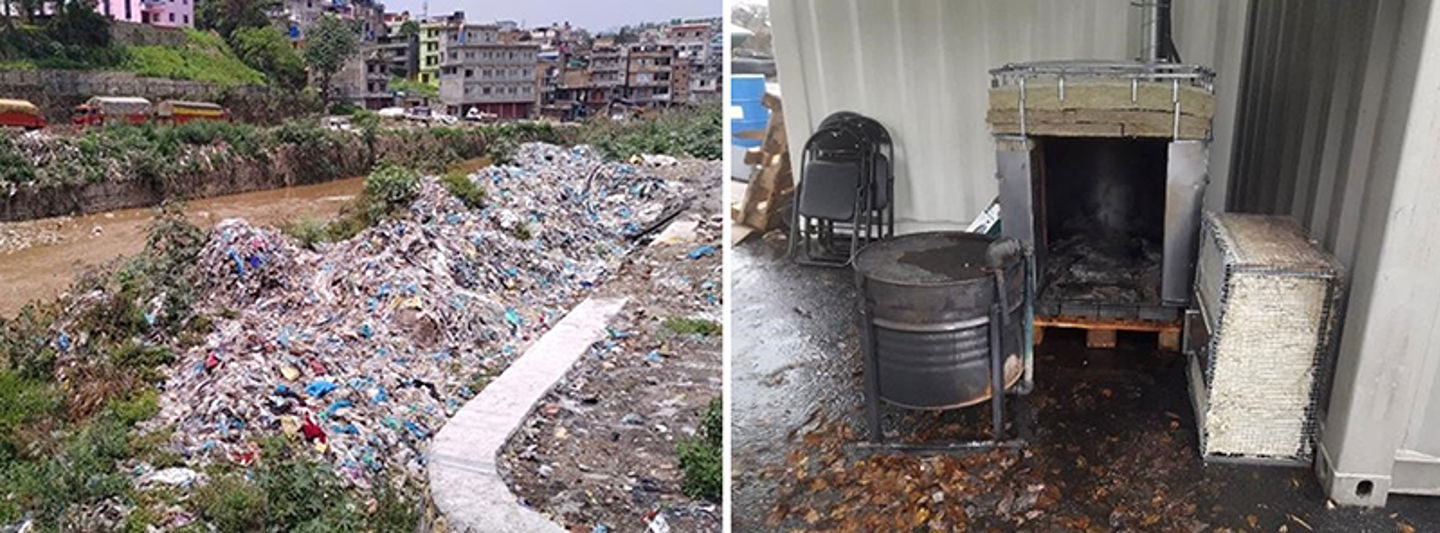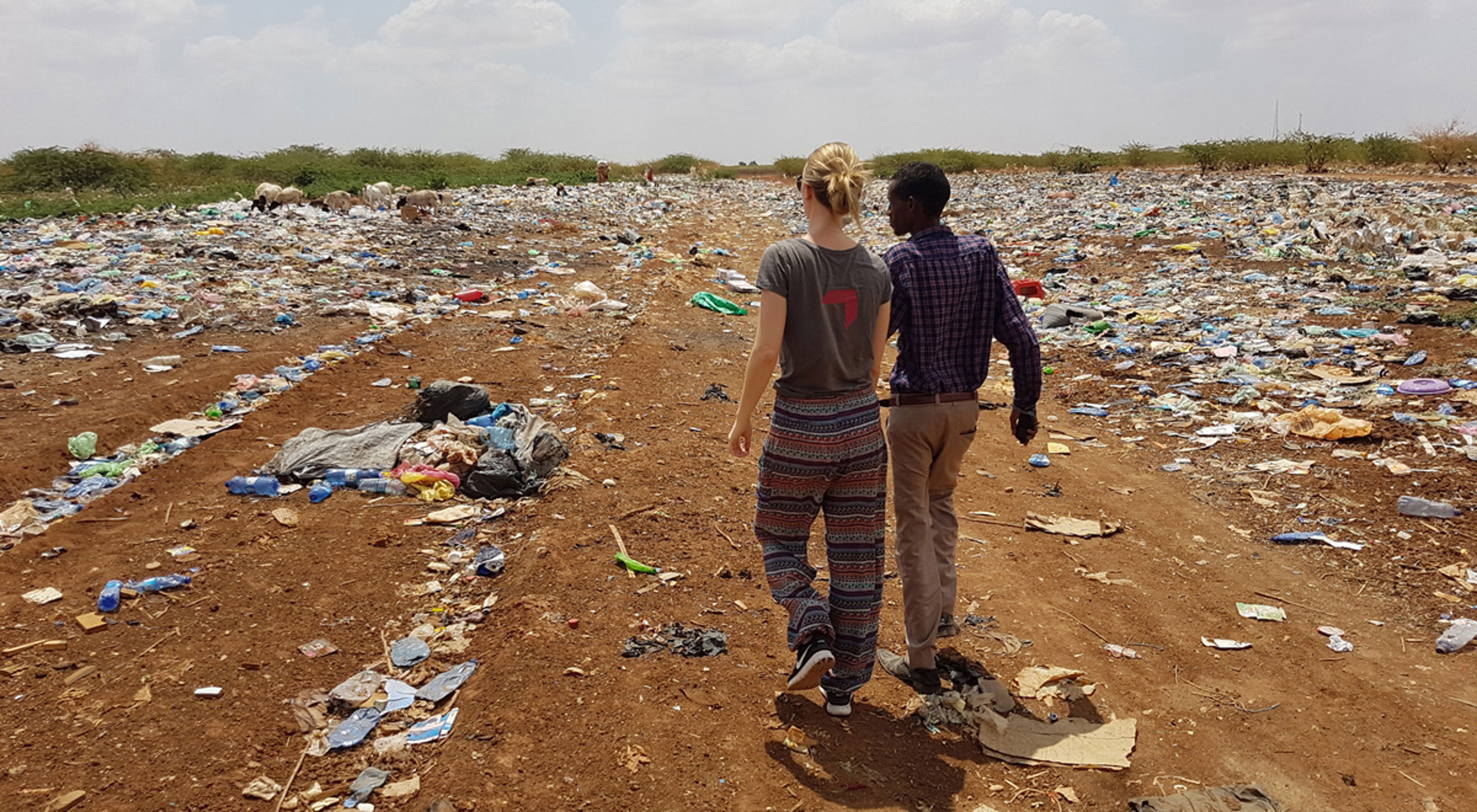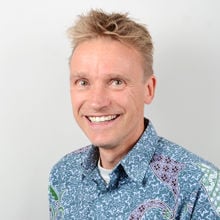Today's plastic recycling systems often require expensive equipment requiring significant resources, space, and technical expertise. Plastic waste in rural areas frequently must be transported to faraway cities for recycling. The result is that waste is burnt or discarded and carried away to rivers and oceans.
Increasing the focus on plastic recycling in developing countries will reduce GHG emissions and pollution. Therefore, NGI, as a research institution, is participating in several projects in Asia and Africa to develop plastic recycling systems that are simple and effective and can be manufactured, maintained, and run locally.

Plastic near the river in Kathmandu Valley (left), Pyrolysis use low-grade plastic to heat and melt higher-grade plastics into new products (right).
Background
Plastic waste is a growing problem worldwide. Many countries do not have waste management and recycling systems. Plastic waste ends up in the environment, where it does irreparable damage and is being burned, leading to global warming and health hazards.
In countries missing proper waste management systems, some of the plastic is still being collected and recycled through informal and private initiatives and companies, especially in and around bigger cities. Still, they only include plastic fractions, which can easily be collected and recycled, hence, has a high enough value to sustain the livelihood of those working with it. These countries' challenge is expanding the system and including lower-grade plastic.
Simple and effective technological solutions can enhance this, but they must fit the local community. Unfortunately, recycling machines bought by recycling entities, humanitarian organizations, or smaller workshops often break down shortly after purchasing them due to a lack of local knowledge to fix the machines or a lack of available tools and equipment.
Since 2018, NGI has been engaged in several projects to research and implement fit-for-purpose plastic recycling technologies for different communities and settings in Ethiopia, Algeria, Uganda, Nepal, and Kenya. No location is similar, and it is essential to consider the local capacity, the informal waste sector in place, infrastructure, existing policies, etc., to find the best solution for each community.
Local communities and authorities are included when selecting recycling and collection methods, and technological solutions are developed specifically for the context. We only use local tools and materials to ensure that repairs are possible when the machines break down.
This process takes more time and resources than the alternative. Still, the goal is to provide long-lasting impact and sustainable businesses that contribute to a higher recycling rate, better environment, and higher employment in the waste sector in the countries where we work.
Read more about the funding agency: HMF - Norwegian Retailers' Environment Fund







